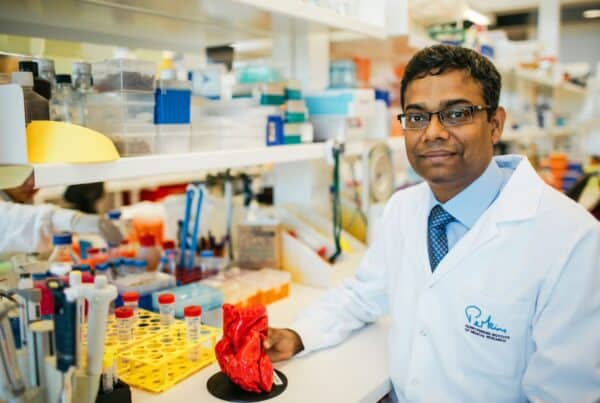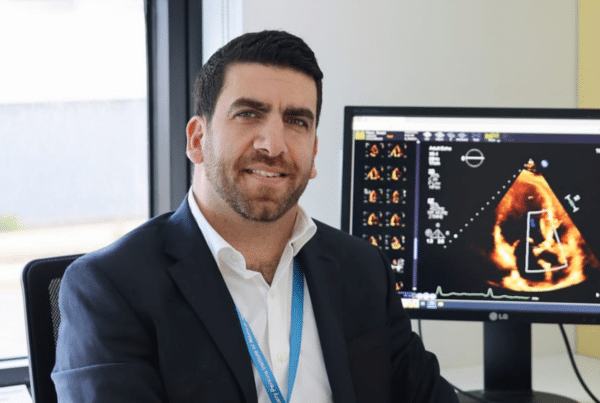Perkins researchers put paid to plaque in arteries
Read More
Our researchers focus on some of the major diseases that affect Western Australians and the global community. In particular we focus on cancer, diabetes, heart disease and rare genetic or neuromuscular diseases.
Impaired kidney function is common, affecting up to one in six adult Australians, with one in three at risk. In most cases kidney disease is not apparent until almost all kidney function is lost. For those who progress to end stage disease, there are few options and more work is needed to improve outcomes for patients.
Cancer refers to a group of diseases characterised by the uncontrolled growth of abnormal cells anywhere in the body. When we’re healthy, cells grow and multiply in a controlled way before naturally dying off to make way for fresh, new cells. If there is damage to a person’s DNA, this can impact the blueprint their cells use to replicate and the cells can become abnormal, which allows them to grow and multiply unmitigated as well as spread to invade other tissues. Mutations that cause abnormal cells can be caused by a number of genetic or environmental factors.
Cancer is an umbrella term used to describe collections of out-of-control cells. Cancer cells can arise from almost any type of tissue cell, so cancer actually refers to about 100 different diseases. Cancers are often categorised according to the organ or cell type where the abnormal cells first developed. Terms such as liver cancer, brain cancer and breast cancer etc refer to the primary site where the cancer started. If these cancer cells spread to other parts of the body, they are termed metastatic cancer.
As abnormal cells (those with mistakes in their genetic blueprint) grow and divide, a mass of abnormal cells or a tumour is formed. In some cases these cells will form a detached lump, in other cases such as leukaemia, abnormal blood cells circulate around the body. Cancer cells can break away from the lump (or tumour) and travel through the lymphatic system or the bloodstream to different parts of the body. These cells can settle in other parts of the body to form a secondary cancer or metastasis and can prevent organs from functioning properly.
We do not know all of the risks and causes of cancer but medical researchers have discovered many significant genetic and environmental factors that can trigger mistakes in the cellular blueprint that ultimately lead to cancer. Environmental factors that cause cancer are called carcinogens and include tobacco, UV radiation and asbestos. Some cancers are caused by genetic errors and can be hereditary and Perkins researchers are focused on finding more of these disease genes as well as finding new, innovative ways to revert the abnormal cells back into healthy cells and treatments that can attack the cancer cells without damaging healthy tissue.


